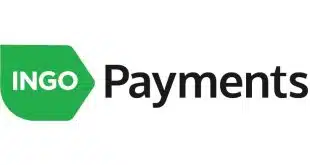The U.S. Treasury Dept.’s Office of the Comptroller of the Currency, which regulates national banks, plans to create a special-purpose national bank charter for financial technology companies, a booming field in which payments firms play prominent roles.
Comptroller of the Currency Thomas J. Curry divulged the planned charter during a speech Friday at Georgetown University in Washington, D.C. In it, he noted that the United States and United Kingdom alone have more than 4,000 fintech companies, and that worldwide investment in the sector has ballooned in just five years from $1.8 billion to $24 billion.
“The reality today is that the 4,000 fintech companies out there are already competing with national and state banks, without regard to any of the national bank responsibilities and under a patchwork of supervision,” Curry said.

Creating the limited-purpose bank charter could enable fintech companies to better serve America’s 85 million millennials, Curry said. “They want technologies and services that provide better, faster, more accessible products and services, and they are willing to switch providers or use multiple providers to get what they want,” he said. “These consumers expect to be able to transact basic banking and financial business anywhere, anytime, from the palm of their hands.”
Another advantage of a fintech charter could be companies’ greater ability to offer financial services to unbanked consumers or those underserved by the current banking system, he added. A third advantage would be the ability of regulators and companies to openly vet risk, ensure that fintech applicants have adequate capital and liquidity, and employ adequate risk controls and consumer protections.
The new national charter does not mean that fintechs already providing financial services must apply for it, Curry said.
Exactly how the charter will affect payments-oriented fintechs was not immediately clear. A 16-page OCC document describing the charter plan makes only a few passing references to payments. In one part, it says a fintech’s business plan “should clearly define the market the proposed bank plans to serve and the products and services it will provide.” A footnote to that sentence says, “For example, the business plan for a proposed bank that will engage in payments activities should address how the bank proposes to access various payment systems.”
A spokesperson for one prominent payments fintech, Des Moines, Iowa-based Dwolla Inc., which is developing application programming interfaces (APIs) for faster payments, said Dwolla is “still processing” Friday’s announcement and would not comment yet, but might later.
Boston-based independent payments analyst Aaron McPherson sees parallels between the OCC charter and the European Union’s Payment Service Directive, which established a special category of regulated institution called a Payment Service Provider (PSP).
“PSPs have certain advantages of access to the banking system,” McPherson tells Digital Transactions News by email. “The big difference here [in the U.S.] would seem to be that it is optional; I would expect there to be legislation at some point requiring fintechs engaged in banking services to get a charter.”
McPherson says he wouldn’t be surprised if companies such as PayPal Holdings Inc. apply for a charter in order to improve customer trust and gain direct access to the Federal Reserve System.
As a national bank, he says, such companies “would probably be able to get direct access to the credit card networks, removing the need for an agent bank. This could be bad news for some existing banks, which profit from giving fintechs access to the banking system, but addresses the concerns that banks have about a level playing field.”
The OCC document notes that the agency could, in the process of chartering a new fintech bank, impose some rules that currently apply only to financial institutions insured by the Federal Deposit Insurance Corp. One is a requirement that institutions comply with the Community Reinvestment Act and lend in all areas where they take deposits.
In October, Curry established the OCC’s “Office of Innovation,” which he called a “central point of contact and clearinghouse for requests and information related to innovation.”
The OCC is taking comments on the plan until Jan. 15 through specialpurposecharter@occ.treas.gov.





